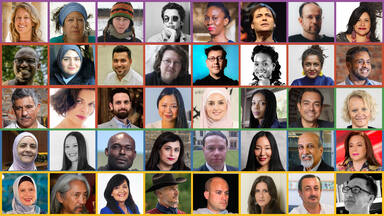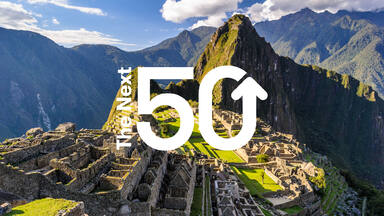Abeer Abu Ghaith
Technology entrepreneur and social activist
Vít Šisler
Researcher, writer, game designer and assistant professor of new media studies at Charles University in Prague
Vision for the Next 50
In the Next 50… We empower women to employ digital technologies such as 3D modelling and NFTs for heritage protection. Protocols respecting different cultural values are established to build synergies between heritage, cultural values and digitalization.
In the Next 50… The disconnect between contemporary culture and heritage is narrowed. The video game is recognized as a storytelling tool to learn and share different cultures and heritage.
Summary
The dialogue between Abeer Abu Ghaith and Vít Šisler centred around respecting different cultural values, and the ways they are shared and transferred. Ghaith emphasized the importance of having protocols to protect different values and heritage, adding that we must also acknowledge and digitally empower women who can actively engage in heritage activities. Šisler spoke of how the storytelling function of digital mediums can help to understand different perspectives. He noted that the boundary between the digital and heritage is disappearing. We should therefore understand both the potential and the limitations of digital media to benefit heritage.
Dialogue
Watch the dialogue
Explore other sessions
Five dialogue sessions covering five themes take place in 2022, each joined by thinkers in paired dialogue from diverse regions. The interdisciplinary dialogues inspire new visions for the next 50 years of World Heritage.



